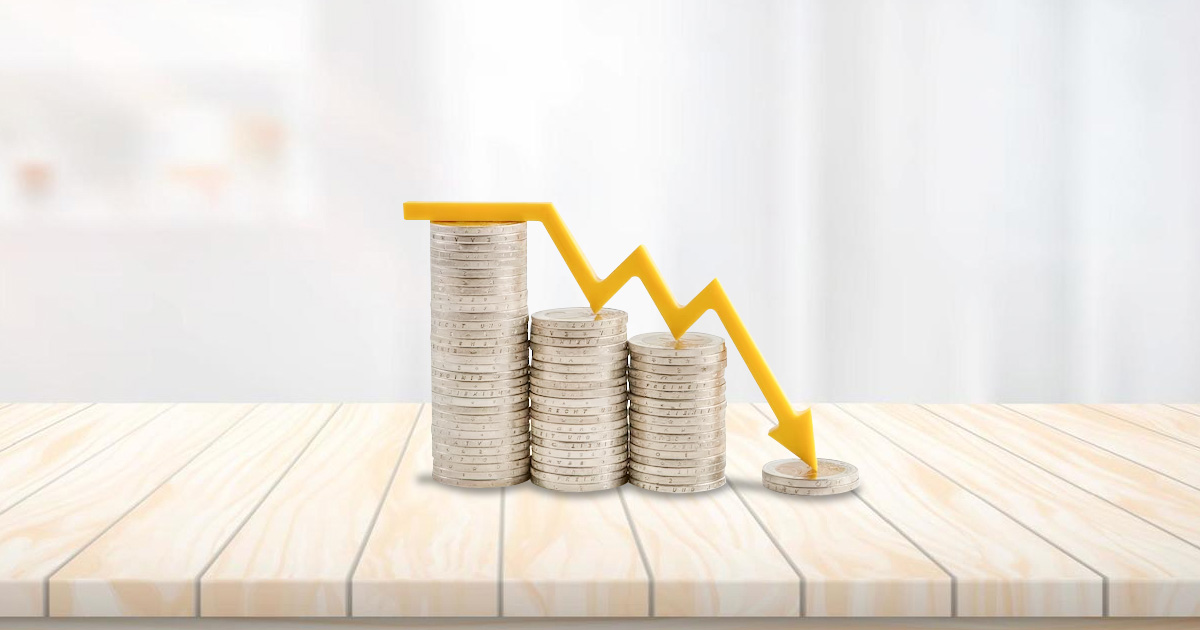10 Strategies to Prepare for a Recession

Even if you haven’t been closely watching how the economy is doing, it’s clear that things are not good right now. After two years of ups and downs because of the pandemic, we’re now facing high prices, a shaky housing market, increasing loan costs, and a stock market that’s not growing.
Furthermore, the bursting of the Bitcoin bubble has increased the uncertainty. Although not officially announced, many believe we are entering another recession, which can be upsetting for the majority of us.
- A recession is a prolonged period of economic downturn, as measured by a region’s GDP and other indicators.
- The pandemic’s commencement in March 2020 marked the end of 129 straight months of economic expansion, the longest stretch in history.
- Recessions are frequently associated with significant unemployment, business closures, and, in some cases, bank failures. However, historically, recessions have seldom lasted longer than a year.
If the United States (and other affluent countries) do enter an official recession, there is no reason to fear. There are numerous strategies to protect yourself and limit financial losses. Some of these measures can be implemented immediately, even before a recession begins. Others are more effective if the economic downturn lasts. But before we go into recession preparedness strategies, let’s define what a recession is.
Understanding the Recession
Traditionally, a recession is defined as two consecutive quarters of considerable economic contraction in a certain region, with at least six months of flat or declining GDP. Other indications, such as increased unemployment, frequently accompany recessions. The National Bureau of Economic Research is in charge of formally announcing recessions.
However, given the events of the last two years, the definition of a recession has changed slightly. Instead than relying primarily on GDP indicators, it now includes “a significant decline in economic activity spread across the economy, lasting more than a few months, normally visible in real GDP, real income, employment, industrial production, and wholesale-retail sales.”
Recession vs. Depression
Despite sounding alike and sharing some traits, a recession and a depression are different, especially when it comes to money matters. A recession usually impacts jobs and making things, leading families to adjust their spending until things get better.
On the other hand, a depression is much worse and widespread, often impacting the whole globe. It involves very high jobless rates and a big drop in economic activity. A depression is like a stronger version of a recession that goes on for at least three years and can affect different parts of the world.
The most recent big economic slump in North America was the Great slump in the early 1930s, which went on for over three and a half years and had lasting effects on many families.
Examine Your Spending Habits
After understanding what a recession is, what can you do? You can’t influence how the government spends money or how the market behaves, but you can adjust your household budget. Reducing spending on things that aren’t necessary can help you manage during difficult periods, even though it might not be enjoyable. Consider dining out less often or canceling subscriptions that aren’t essential to save money. Small savings can make a big difference, especially when it’s hard to find extra money during a recession.
Prioritize High-Interest Debt
When it comes to debt repayment schemes, prioritizing high-interest debt is critical, particularly during a recession or its anticipation. While approaches such as the debt snowball and debt avalanche are effective, prioritizing the debt with the greatest interest rate is financially ideal. High interest rates can deplete your funds over time, so paying off these loans quickly might save you hundreds or even thousands of dollars. Make sure you continue to make minimum payments on all loans, with a focus on the highest interest one.
Investigate Income Expansion Opportunities
Increasing your income during a recession can be difficult owing to economic restraints, but it is not impossible. While traditional options such as raises and promotions may be limited, looking into alternative income streams such as freelancing or part-time work might help augment your wages. Consider discussing prospective wage adjustments or advancements with your employer, stressing your contributions to the organization. Investing in your career development through online courses and certifications can also help you gain employment once the economy improves.
Invest Wisely
While market downturns might be disconcerting, keeping a long-term investment perspective is critical. If you have retirement savings, resist the impulse to withdraw them during market turmoil. Instead, see this as a purchasing opportunity, as stocks are practically on sale. For individuals who have yet to invest, a recession is an excellent moment to do so, with lower stock prices providing opportunities for future gain. To limit risk, focus on diverse investments like index funds rather than attempting to time the market or pick particular stocks, which is generally unproductive.
Build an Emergency Fund
In addition to debt management and income diversification, setting up an emergency fund is critical for financial security, regardless of economic situations. Aim to save three to six months’ worth of living expenses in an easily accessible fund to protect against unforeseen financial shocks. Start small if required, and progressively increase your contributions over time. Prioritize paying off high-interest debt before rapidly increasing your emergency fund.
Craft and Stick to a Budget
Maintaining a budget is an essential part of financial management since it provides clarity on income and expenses. Whether you use traditional techniques like pen and paper or digital tools, make sure your budget includes all recurrent expenses, such as subscriptions and discretionary spending. A thorough budget facilitates better financial planning and allows for modifications during times of economic instability.
Avoid Panic
Finally, during economic volatility, it is critical to remain calm and prevent panic. While worrisome news and market swings can cause worry, historical trends show that economic downturns are cyclical and eventually lead to recovery. By applying conservative financial practices and keeping patient, you can weather recessions with fortitude and emerge stronger when conditions improve.
To Sum Up
Even though the present economy might make you worry about a possible recession, being smart with your money can lessen the effects. You can make your finances stronger by checking your spending, focusing on paying off debts, finding ways to earn more, and making wise investments. Having an emergency savings, following a budget, and staying calm during market ups and downs are key to being ready for a recession. Keep in mind that tough economic times don’t last forever, and with good planning, you can get through it and be ready for better times ahead.

Senior Writer • Business and Information Trends Writer
Lucas writes long-form, investigative articles that explore the deeper implications of business and information advancements.

